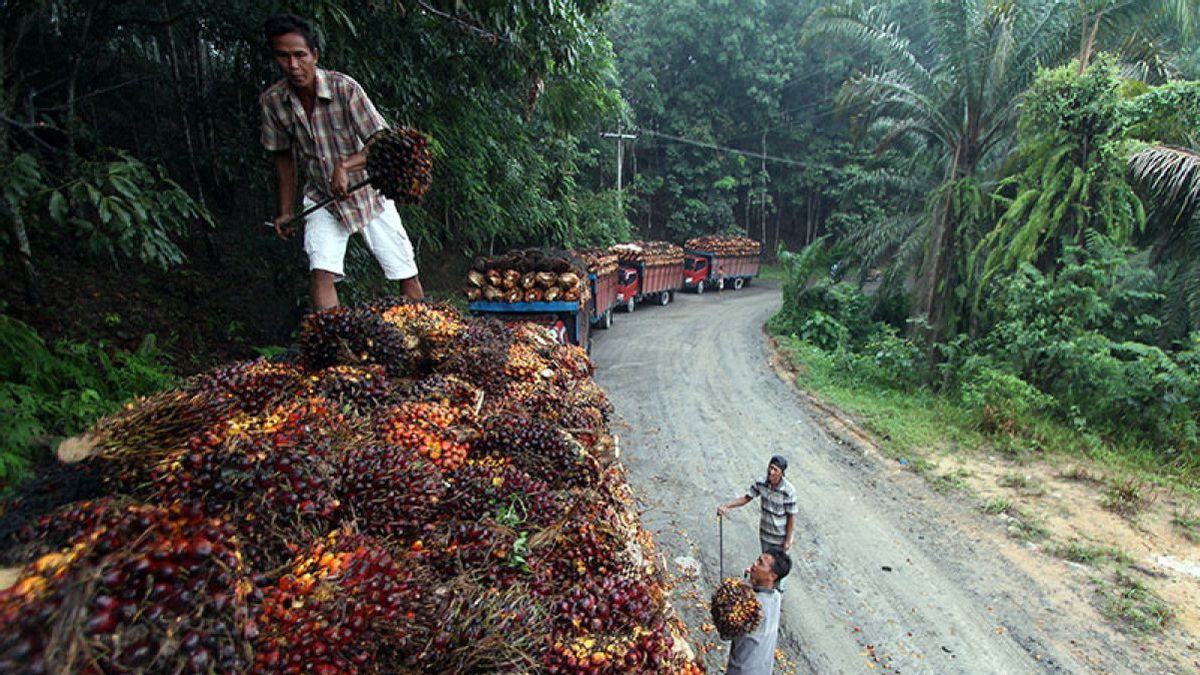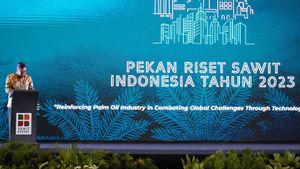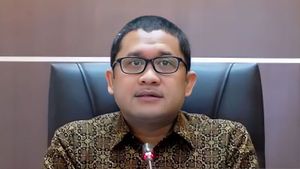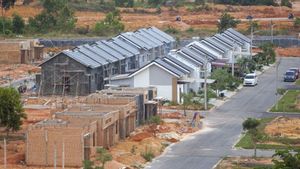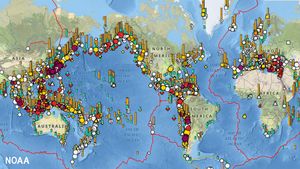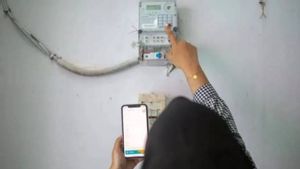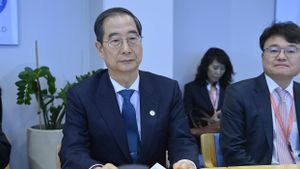Coordinating Minister for Economic Affairs Airlangga Hartarto said that the palm oil industry is an integral part of the global economy as well as an important role in the national economy.
According to Airlangga, the palm oil industry also has an impact on reducing poverty levels among rural farmers, including for small farmers and contributing to the creation of productive employment opportunities and job opportunities, food security, energy security, and the provision of consumer goods.
Airlangga said, with the estimate that the world's population will reach 9.8 billion people by 2050, the world will need an additional 200 million tons of vegetable oil production by then.
Oil palm is a sustainable and efficient way to meet the increasing demand for vegetable oil," said Airlangga when giving a virtual speech at The 19th Indonesian Palm Oil Conference (IPOC) and 2024 Price Outlook, Thursday 2 November.
He said palm oil also supports the provision of transportation fuels that are more environmentally friendly, such as sustainable flight fuels. Indonesia has developed a SAF known as BioAvtur 2.4 percent or J2.4.
On the other hand, in increasing palm oil productivity, Indonesia has replanted 200,000 hectares since 2007 and an area of 180,000 hectares is being replanted this year by allocating a budget of 386 million US dollars.
Meanwhile, at the global level, the European Union's initiative through the European Union Deforestation Regulation (EUDR) policy to limit deforestation caused by forestry and agricultural activities around the world will have a direct impact on Indonesia's main commodities, namely palm oil, coffee, cocoa, rubber, soybeans, cows, and wood.
Airlangga admitted that the government is ready to collaborate with the European Union in building a framework that encourages sustainable agriculture, including vegetable oil production, in an inclusive, holistic, fair, and non-discriminatory manner.
"It is very important for the European Union to fully recognize and realize that the national sustainability standards of producing countries can meet the necessary requirements to access the EU market," Airlangga stressed.
Furthermore, The Council of Palm Oil Production Countries (CPOPC) has established intensive communication with the European Union commission to address pressures and has produced six work teams including small farmer inclusiveness, relevant certification schemes, tracing, scientific data on deforestation and forest degradation, as well as protection of privacy data.
Airlangga said the government had developed a clearing house to ensure that all plantation commodities to be exported could be traced to ensure the global market that these products are produced from sustainable plantations.
اقرأ أيضا:
According to him, the development of sustainable palm oil is also driven through the Indonesia Sustainable Palm Oil Plantation Certification System (ISPO).
ISPO certification guarantees production practices carried out by palm oil companies and farmers follow the principles and rules of sustainability.
Apart from ISPO, the Indonesian government also supports voluntary certification through the Roundtable on Sustainable Palm Oil (RSPO) scheme.
The palm oil industry contributes to supporting economic recovery, as well as social aspects and the community. By working together, we can achieve the goal of sustainable oil palm plantations, low-carbon development, climate resilience and sustainability, as well as strengthening the domestic palm oil industry," Airlangga concluded.
The English, Chinese, Japanese, Arabic, and French versions are automatically generated by the AI. So there may still be inaccuracies in translating, please always see Indonesian as our main language. (system supported by DigitalSiber.id)
